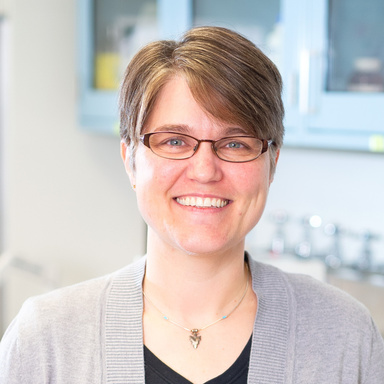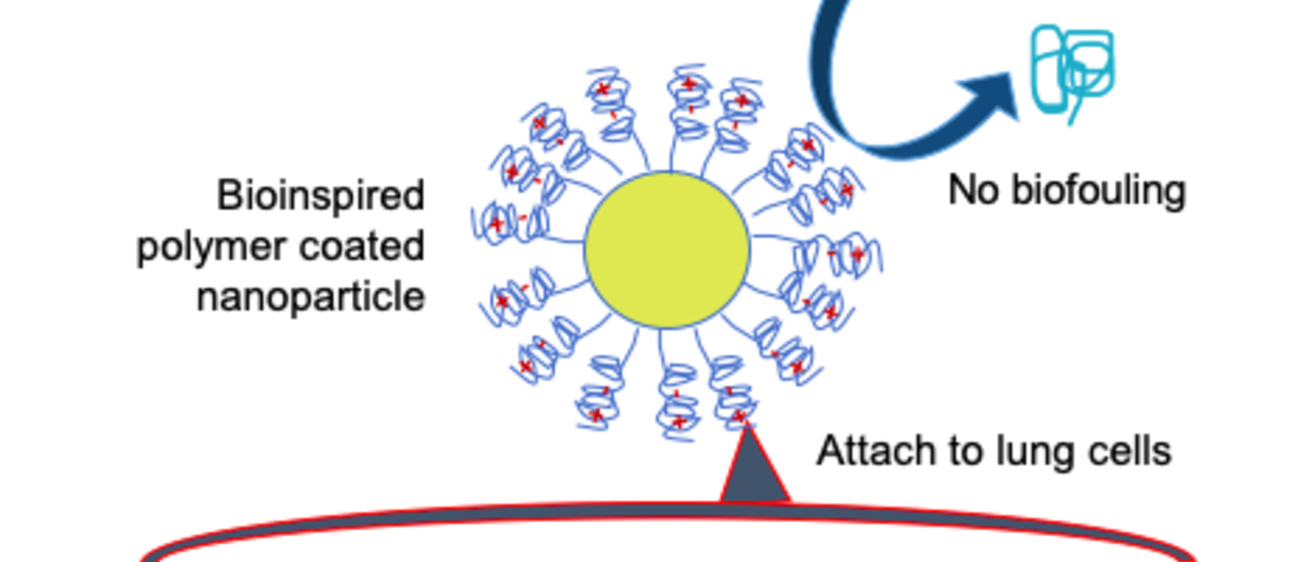
University of Iowa scholars in engineering and pharmacy are designing polymers to help maintain the effectiveness of drugs once they enter the lungs of patients dealing with infections, cancer, genetic disorders or other conditions.
“We are interested in targeting drugs specifically to lung cells to treat conditions that affect the lung tissues,” says Jennifer Fiegel, an associate professor of chemical and biochemical engineering and University of Iowa Technology Institute faculty affiliate who runs the Fiegel Lab. “The lung epithelium is the layer of cells that lines the lungs and interfaces with your breath, and therefore is the first layer of cells that inhaled drugs would interact with. But most drugs don’t stay within the lungs for long, so there isn’t enough drug to treat the lung disease.”
Fiegel is principal investigator on a National Science Foundation (NSF) grant to continue research on the design of zwitterionic polymer coatings to aid in the treatment of conditions that affect lung tissue. David Roman, of the UI College of Pharmacy, is the co-principal investigator and an expert in the cell receptors they aim to target.
NSF awarded Fiegel’s project – Bioinspired Nanoparticle Polymer Coating to Enhance Targeting to the Lung Epithelium – $188,266 on July 28. The award could grow to $491,323 over three years.
To effectively treat disease, drug molecules must accumulate in sufficient amounts at a specific site in the body. To achieve this, tiny vehicles called drug carriers are often needed, but unwanted interactions within the body often limit their effectiveness. By understanding how bacterial and viral pathogens infect human cells, the researchers are designing bioinspired polymer coatings for drug carriers to boost their interactions with lung cells and to prevent biofouling – or buildup of unwanted specimens on a surface to the detriment of function – on the carrier surface.
The focus of the grant is a twist on a project Fiegel has been working on for the past 10 years that involved ripping bacterial targeting ligands directly off bacterial surfaces and using these ligands as a coating for drug carriers.
Longer term, these results will enable the development of drug nanocarriers that provide better treatment of disease by decreasing the amount of drug required for treatment and limiting side effects.
